Filter by
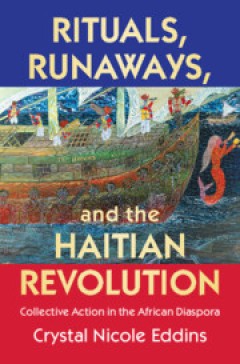
Rituals, runaways, and the Haitian Revolution : collective action in the Afri…
The Haitian Revolution was perhaps the most successful slave rebellion in modern history; it created the first and only free and independent Black nation in the Americas. This book tells the story of how enslaved Africans forcibly brought to colonial Haiti through the trans-Atlantic slave trade used their cultural and religious heritages, social networks, and labor and militaristic skills to su…
- Edition
- Edisi 2
- ISBN/ISSN
- 9781009256148
- Collation
- xiii, 355p.: ill.
- Series Title
- -
- Call Number
- 305.89607294 EDD r
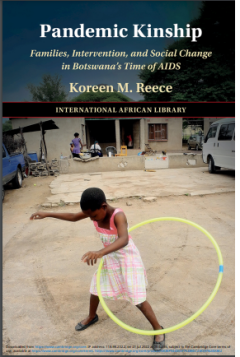
Pandemic Kinship : Families, Intervention, and Social Change in Botswana's Ti…
Shaped around the stories of one extended family, their friends, neighbours, and community, Pandemic Kinship provides an intimate portrait of everyday life in Botswana's time of AIDS. It challenges assumptions about a 'crisis of care' unfolding in the wake of the pandemic, showing that care - like other aspects of Tswana kinship - is routinely in crisis, and that the creative ways families navi…
- Edition
- -
- ISBN/ISSN
- 9781009150200
- Collation
- xiii, 328p, : ill
- Series Title
- -
- Call Number
- 306.85096883 KOR
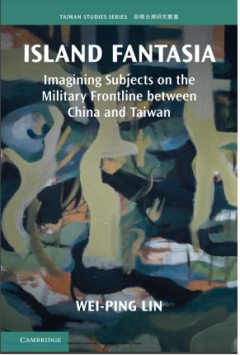
Island Fantasia
The Matsu archipelago between China and Taiwan, for long an isolated outpost off southeast China, was suddenly transformed into a military frontline in 1949 by the Cold War and the Communist-Nationalist conflict. The army occupied the islands, commencing more than 40 long years of military rule. With the lifting of martial law in 1992, the people were confronted with the question of how to move…
- Edition
- -
- ISBN/ISSN
- 9781009023481
- Collation
- xvii, 330p, ill
- Series Title
- -
- Call Number
- 951.249 WEI
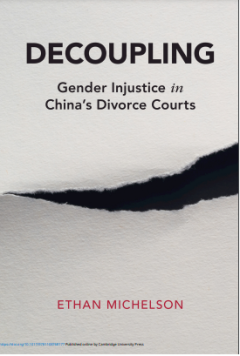
Decoupling: Gender Injustice in China's Divorce Courts
Michelson's analysis of almost 150,000 divorce trials reveals routine and egregious violations of China's own laws upholding the freedom of divorce, gender equality, and the protection of women's physical security. Using 'big data' computational techniques to scrutinize cases covering 2009–2016 from all 252 basic-level courts in two Chinese provinces, Henan and Zhejiang, Michelson reveals tha…
- Edition
- -
- ISBN/ISSN
- 9781108768177
- Collation
- xiii, 574p,: ill
- Series Title
- -
- Call Number
- 306.8930951 ETH
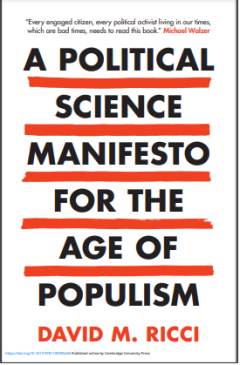
A Political Science Manifesto for the Age of Populism
Populism and authoritarian-populist parties have surged in the 21st century. In the United States, Donald Trump appears to have become the poster president for the surge. David M. Ricci, in this call to arms, thinks Trump is symptomatic of the changes that have caused a crisis among Americans - namely, mass economic and creative destruction: automation, outsourcing, deindustrialization, globali…
- Edition
- -
- ISBN/ISSN
- 9781108785440
- Collation
- x, 258p: ill,
- Series Title
- -
- Call Number
- 320.473 DAV
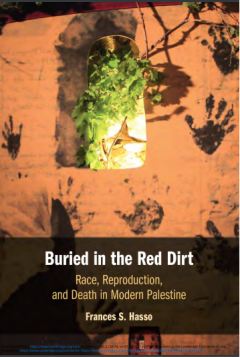
Buried in the Red Dirt Race, Reproduction, and Death in Modern Palestine
Bringing together a vivid array of analog and non-traditional sources, including colonial archives, newspaper reports, literature, oral histories, and interviews, Buried in the Red Dirt tells a story of life, death, reproduction and missing bodies and experiences during and since the British colonial period in Palestine. Using transnational feminist reading practices of existing and new archive…
- Edition
- 5
- ISBN/ISSN
- 9781009072854
- Collation
- vii, 288p, : ill,
- Series Title
- -
- Call Number
- 610.73092 FRA b
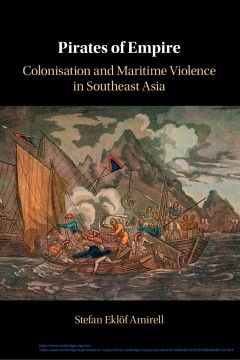
Pirates of empire : colonisation and maritime violence in Southeast Asia
The suppression of piracy and other forms of maritime violence was a keystone in the colonisation of Southeast Asia. Focusing on what was seen in the nineteenth century as the three most pirate-infested areas in the region - the Sulu Sea, the Strait of Malacca and Indochina - this comparative study in colonial history explores how piracy was defined, contested and used to resist or justify colo…
- Edition
- -
- ISBN/ISSN
- 9781108594516
- Collation
- ix, 266p. : ill.
- Series Title
- -
- Call Number
- 364.164 AMI p
 Computer Science, Information & General Works
Computer Science, Information & General Works  Philosophy & Psychology
Philosophy & Psychology  Religion
Religion  Social Sciences
Social Sciences  Language
Language  Pure Science
Pure Science  Applied Sciences
Applied Sciences  Art & Recreation
Art & Recreation  Literature
Literature  History & Geography
History & Geography